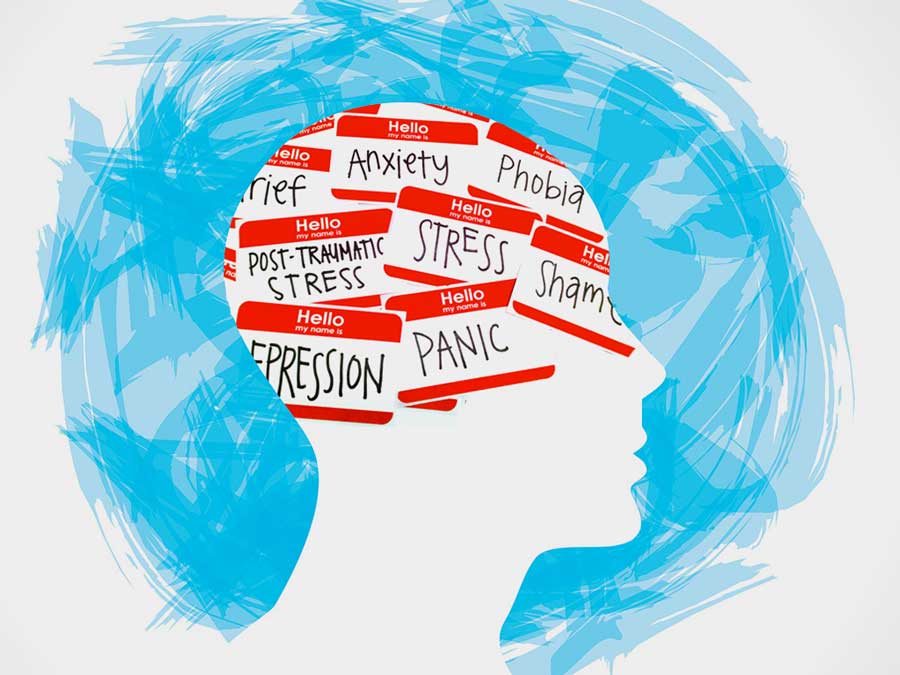In the intricate tapestry of human health, the gut-brain connection emerges as a captivating and intricate thread. While traditionally viewed as distinct entities, the gut and the brain are increasingly recognized as interconnected, with profound implications for our overall well-being. In this comprehensive exploration, we embark on a journey through the complex terrain of the gut-brain axis, uncovering the remarkable ways in which gut health influences mental well-being.
The Gut-Brain Axis: A Bi-Directional Highway
At first glance, the gut and the brain might appear unrelated, residing in different anatomical realms. However, they are intimately linked through an intricate network of communication pathways, collectively known as the gut-brain axis. This bi-directional highway allows constant crosstalk, where the gut and the brain exchange messages and influence each other’s functions.
Key Components of the Gut-Brain Axis
- Enteric Nervous System (ENS): Often referred to as the “second brain,” the ENS is a complex web of neurons that lines the gastrointestinal tract. It autonomously regulates gut processes but communicates with the central nervous system (CNS).
- Vagus Nerve: The vagus nerve serves as a vital conduit, facilitating communication between the gut and the brain. It plays a pivotal role in relaying information about gut health and microbial activity.
- Microbiota: The gut harbors trillions of microorganisms, collectively known as the gut microbiota. These microbes produce a vast array of bioactive compounds that can influence brain function.
Gut Health: The Foundation of Mental Well-being
The state of your gut has far-reaching implications for your mental health. Research has unveiled a striking connection between gut health and mental well-being, shedding light on how the gut can act as a silent influencer of mood, cognition, and emotional stability.
1. Neurotransmitter Production
The gut is a bustling hub of neurotransmitter activity. In fact, approximately 90% of serotonin, a key neurotransmitter associated with mood regulation, is produced in the gut. A balanced and diverse gut microbiome is essential for the synthesis of these vital chemical messengers.
2. Inflammation and Immunity
Chronic inflammation in the gut can trigger a cascade of events that affect the brain. Inflammatory signals can breach the blood-brain barrier, leading to neuroinflammation, which is implicated in mood disorders such as depression and anxiety.
3. Microbial Diversity
A diverse gut microbiome is a sign of good gut health. Microbial diversity is associated with improved mental well-being and cognitive function. Conversely, an imbalanced microbiome, known as dysbiosis, has been linked to mood disorders.
4. Gut-Brain Signaling
The vagus nerve acts as a vital messenger in the gut-brain axis, relaying information about gut health to the brain. This signaling can influence stress responses, emotional regulation, and even memory formation.
Gut Health and Mental Well-being: Insights from Research
The compelling link between gut health and mental well-being is supported by a growing body of scientific research. Let’s explore some key findings that illuminate this connection.
1. Gut Microbiota and Mood Disorders
Studies have shown that individuals with mood disorders, such as depression and anxiety, often exhibit alterations in their gut microbiota composition. These microbial imbalances can contribute to the onset and severity of these conditions.
2. Probiotics and Psychological Health
Research into the use of probiotics, beneficial bacteria that can positively influence the gut microbiota, has yielded promising results. Probiotic supplementation has been associated with reduced symptoms of anxiety and depression.
3. Diet and Mental Health
The food we consume plays a crucial role in shaping our gut microbiome. A diet rich in fiber, prebiotics, and fermented foods can promote gut health and, in turn, support mental well-being.
4. Stress and Gut Permeability
Chronic stress can disrupt the integrity of the gut lining, leading to increased gut permeability or “leaky gut.” This phenomenon can allow harmful substances to enter the bloodstream, potentially exacerbating stress-related mental health issues.
Nurturing Your Gut for Optimal Mental Well-being
Given the profound impact of gut health on mental well-being, it’s essential to take proactive steps to support this symbiotic relationship. Here are strategies to nurture your gut for optimal mental health:
1. Diet and Nutrition
- Fiber: Consume a fiber-rich diet with plenty of fruits, vegetables, and whole grains to nourish beneficial gut bacteria.
- Prebiotics: Include prebiotic-rich foods like garlic, onions, and leeks to feed your gut microbes.
- Probiotics: Incorporate probiotic-rich foods like yogurt, kefir, sauerkraut, and kimchi into your diet.
2. Stress Management
- Meditation: Practice mindfulness meditation to reduce stress and promote a healthier gut-brain axis.
- Exercise: Regular physical activity can have a positive impact on gut health and mental well-being.
- Adequate Sleep: Prioritize quality sleep, as sleep disturbances can disrupt gut health and mood.
3. Limit Antibiotic Use
While antibiotics can be life-saving, their indiscriminate use can disrupt the gut microbiome. Use antibiotics only when medically necessary.
4. Seek Professional Guidance
If you’re experiencing mental health challenges, consult with a healthcare provider. They can assess your condition and provide guidance on how to support both your mental health and gut health.
The Future of Gut-Brain Research
As our understanding of the gut-brain connection deepens, the future holds promise for innovative approaches to mental health. Researchers are exploring the potential of interventions like fecal microbiota transplantation (FMT) and precision nutrition to target gut health for mental well-being.
In Conclusion
The profound interplay between gut health and mental well-being invites us to recognize the holistic nature of human health. Embracing a lifestyle that prioritizes a healthy gut through mindful nutrition, stress management, and informed choices can empower us to cultivate not only physical well-being but also emotional resilience and mental vitality. The journey of nurturing the gut-brain connection is one of profound discovery, offering a pathway to a harmonious and flourishing life.


